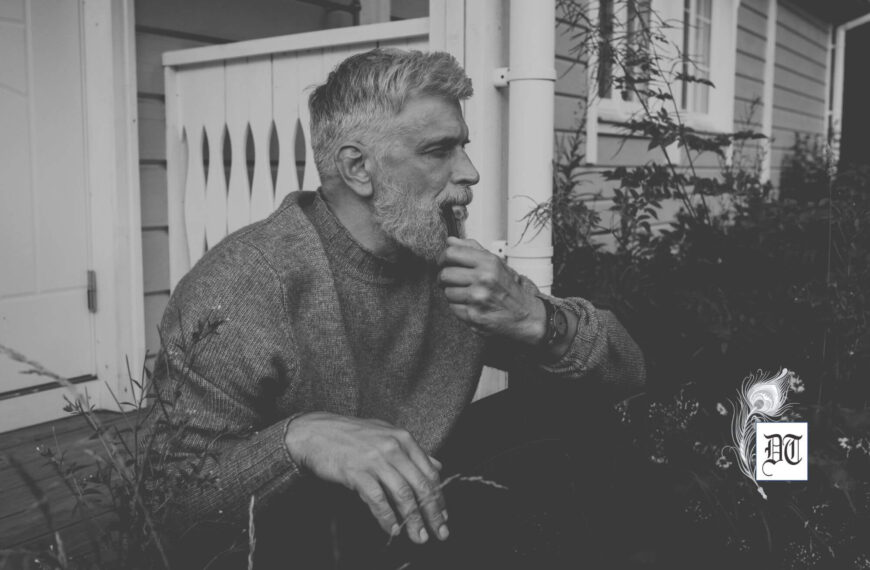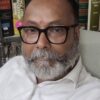In his over three-decade journey as a journalist, Arindam shows us the many faces of newsrooms in India, at the turn of the Millennium. He calls this series, ‘The Life of a Reporter’. Insightful, humorous, serious or sad, there are many shades and hues in the lives of reporters that never see the light of the day. Here’s a firsthand account from an insider.
The year was 1982. I was working with a renowned magazine, Economic and Political Weekly (EPW). A serious journal, known as the ‘Far Eastern Economic Review of India’, it attracted many promising young writers. Quite a few of them were powerhouses of creativity. Their radical and revolutionary ideas were infectious.
One such person was Vijayan (name changed), he resembled John Lennon. Lanky and tall, a shock of curly black hair dangled on his brows. Bubbling with Marxian ideology, he wore Lennon-spectacles. He would often be engrossed in reading, while smoking a cigar or pipe. He would suddenly toss his head, like a table player perhaps listening to beats that were audible to him alone. The shock of his hair would bounce on his forehead.
When Vijayan spoke – which was rare – everyone would listen to him, mesmerised. It seemed his audience, two or twenty, forgot to breathe. I held Vijayan in great awe. We were different from each other in every-which-way. Perhaps, therefore, we became good friends.
He would often talk about people, countries, geopolitics, ideas that could change the world. But, seldom had any of us heard him talk about himself. As he spoke in a sonorous voice, he grew in stature. He was larger than his physical self. Way too big for us, lesser mortals, to measure up to him. But, there was not an iota of pride or arrogance in him.
It would not be far-fetched to call him saint-in-dirty-jeans. His impeccable English, his mastery over several languages, facts, figures, his swagger and smile, all pointed out to his upbringing in an elitist home. But, no one knew the details of his personal life.
It seemed he had sunk his smaller self (read personal life) for a greater cause. He was in his mid-20s. And he believed in himself so much that he decided to stay and work among the slum dwellers, in Dharavi, one of Asia’s largest slums, in Bombay. It wasn’t Mumbai then!
The system that bred Vijayan was the one that had angered him. He saw human sufferings, deprivation, hunger and poverty as means to exploit people. The stratification of the capitalist system that grew on the decadent feudal power structure was meant to keep the vast majority deprived and insecure. The subalterns – Dalits, women and children included – were fodder to the power-hungry rulers. “Animals had rights. People none,” he would often agonise.
I still remember it was early Saturday evening in November. Vijayan came to me, in the printing press in Fort area. I was releasing some forms for printing. He asked, “When you’re free from work? Call up your people (I was staying as a PG in Andheri with my cartoonist friend’s family) and tell them you’d be back on Sunday night.” Before I could ask any further details, he stopped me, “No questions asked, Buddy. Trust me.” He smiled. And his entire face lighted up. His large brown eyes smiled. I nodded and smiled back, before returning to my work.
He, along with his school friend, came to fetch me at 7.30pm. We boarded a bus and went to Nariman Point. After walking for about 20 minutes, we reached a posh multi-storied building. The guard at the gate saluted Vijayan and took us to the lift. I was in a daze!
The swanky lift glided up in silence. It opened in a large apartment’s drawing room. This was the home that Vijayan had walked out of, few years ago. A bare bodied Tam-Bram cook invited us graciously. An excited shriek sound startled us. A lissome girl rushed and held Vijayan in tight embrace. Her back was towards us. From the quiver of her shoulders and back, we knew she was crying, silently.
Vijayan’s other friend almost whispered, “She is Vijayan’s sister. It’s her birthday.” I asked him softly, “Vijayan never told me. I haven’t brought any gift for her…” He said, “Vijayan does not believe in gifts.”
I was speechless!
Vijayan introduced his sister to me. His other friend had known the family for years. We wished her.
We were taken to another room. We were served the best liquors with finger-licking vegetarian delights. Over drinks, I learnt more about by wise, saintly friend’s personal life.
His father was a top bureaucrat in the Maharashtra government. Vijayan called his earnings ‘blood money’. He was angry that his father was serving his class enemy and thus, possibly was one. His mother had passed away couple of years back. Before dying, she made him promise that he would come home at least once, on his younger sister’s birthday.
His little sister waited for him. So did his father. She sat for most of the time, with us, cuddled to her big brother, who she would meet after another year. A lissome girl with long hair, she had large, dark eyes. Despite her smiles, there was a shadow of sadness in her eyes. Vijayan smiled and said, “She has my mother’s eyes,” pointing to a large framed photo on the wall. The resemblance was striking.
An hour later, his father, a tall man, with a somber look, came and met us all. He patted Vijayan on the back. Vijayan got up and hugged him. His sister was smiling. I felt his mother too was happy. Their son had returned home, if only for a while…
Portrait of John Lennon from the Net is indicative


 By
By

 By
By
 By
By
Wow. This story is like an O. Henry tale only better because it is true! Arindam Roy speaks brings this character to life splendidly, revealing him piece by delicious piece. I savored every word and my takeaway was that strong, ‘saintly’ characters are often rooted in the need for redemption, be it personal or political.
This is way too big a compliment! Thanks a lot, Joyce. I was fortunate to meet such people in flesh and blood. Yes, all of us seek redemption. And it comes in many forms,
Vijayan is a rarity in our country of crores
That’s right, Sanjoy. We need to talk of such people more and more. They are the true icons.